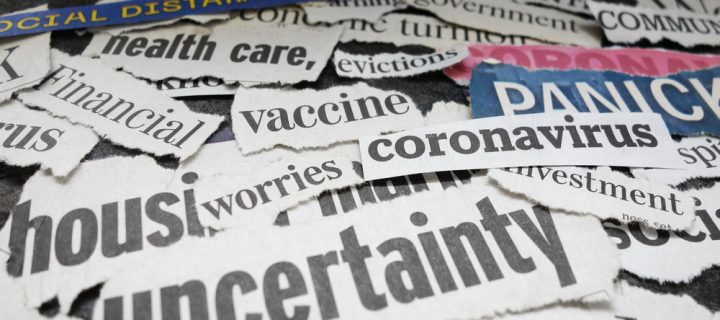Some groups are faring better than others. Your age and occupation can make a big difference.
We may be going about our daily lives now pretending the pandemic is over. Someplace in the cobwebs of our minds, however, we know this isn’t true. You only have to flick on the TV news for a moment, (or glance here) to know it is alive and well. People are still being infected, some dying, and while some places are getting a break from infections, new surges continue to pop up around the globe. It’s a heavy load.
Some of us are having an easier time with the mental stress than others. There are those seemingly living in denial, but there are others who are hiking up a steep slope with no easy end in sight. Sometimes we are them. We might stop and sit on a rock for an hour, a day, (or a week), but when the hiking resumes, there really isn’t any reprieve.
In light of this, obviously, experts say the pandemic is affecting our mental health. Just what is really happening to us will not be entirely clear for some time, however. It may be that we will become more racist. Many might grow more fearful of all kinds of group settings, in general. Some might actually periodically fear the very end to humanity itself-is it just around that next dark corner? Waiting in the shadows?
We have been told it isn’t, but nonetheless, the present seems daunting.
Related: How Schools Are Reopening Across the World
People of every age is being affected differently, they say. A study done at the University of British Columbia in Canada found that older adults aged 60 and up are actually faring better emotionally speaking than those aged 18 to 39. Younger adults are at a greater risk of feeling increased loneliness, and more psychological distress. Older adults, while they are more likely to die from the virus, are actually showing they have better coping skills than others.
Who else is really suffering? Medical staff. You have really got to be a mental workhorse to get through this whole time unscathed if you are working on the front lines in medical care.
Research done at North Carolina State University found that on average healthcare professionals were reporting so many symptoms of depression right now that they can be classified as suffering from clinical depression. They need mental help. It all feels out of control. Unfortunately, many in this group have become so down they are now feeling helpless and doing little in the way of “proactive coping”. They are not really preparing themselves for future bouts of stress or any other adverse events. In essence, this group has lost their strength.
People who suffer from eating disorders are also said to be teetering on the precipice. Work done in England is suggesting that about 90% of those dealing with an eating disorder during the pandemic are getting worse. This is because all of those prompts in the media to “get out and exercise” in order to avoid packing on pounds while staying at home is a major trigger for those who struggle to regularly eat enough.
Related: Should You Be Drinking Lowfat or Whole Milk?
There are some positives, of course. Access to telemedicine has increased around the world, and this a great benefit to mental health. The increase in remote mental health services now available to scores of people will likely remain in place when the pandemic ends, experts say. This is great news. In this way, some aspects of the pandemic will actually leave us potentially stronger than before. We just need to use these extra resources in order to keep ourselves up and able to face whatever may be coming next.
The CDC reminds us that everyone deals with their stress differently. If you are in a crisis, call 911. If you are feeling suicidal, click here for help.
Increasing your negative habits such as using tobacco and alcohol, are signs of stress. Consider your habits and how you cope. Changes in your sleep and eating patterns, and growing fears and worries are all signs that it could be good to reach out for help.
There are loads of online counseling and mental services in all price ranges. If you think you could use a helping hand, consider a quick Google search, and get on track to feeling in control.
photo credits: zimmytws/Shutterstock.com












